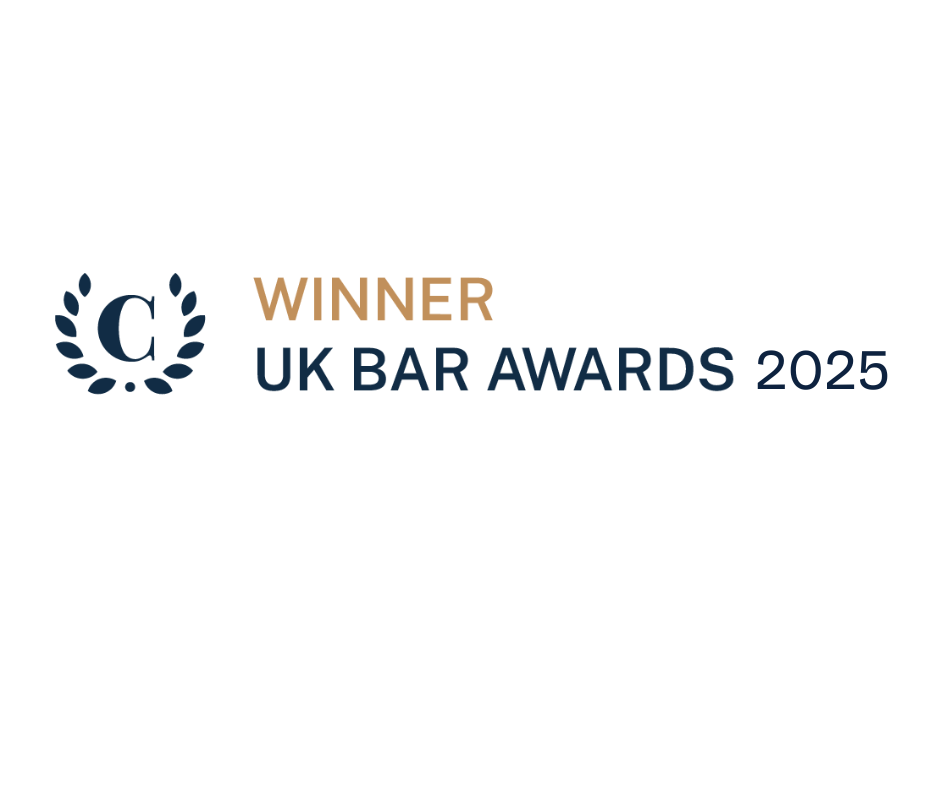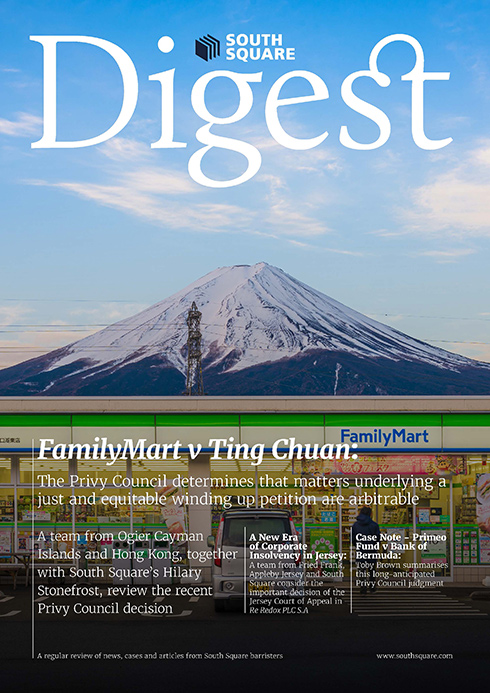
Fraudulent trading – wrongful trading – continuance of companies in Abu Dhabi Global Market (ADGM) – impugned conduct prior to continuance in ADGM – whether statutory discretion to order relief for fraudulent or wrongful trading in respect to such conduct – impugned conduct in part prior to the enactment of statutes themselves – retrospectivity – whether statutory discretion to order relief for fraudulent or wrongful trading based on pre-enactment conduct – sufficient connection – whether it is necessary for there to be a sufficient connection between the respondent and the ADGM for such relief to be granted
ADGM Court of First Instance, Justice Sir Andrew Smith, 8 July 2024
If a company incorporated in a given legal system is operated in a way that amounts to fraudulent or wrongful trading and that company is continued (reincorporated) in a different legal system, can the courts of the latter legal system grant relief for fraudulent or wrongful trading?
The ADGM CFI has answered ‘yes’ to this question. It has also answered ‘yes’ to the question of whether relief can be granted in respect of impugned conduct that occurred prior to the enactment of the relevant ADGM statutes that permit an officeholder to apply for such relief. The ADGM CFI also held that it was not necessary for there to be a sufficient connection between the defendant and the ADGM and that other connecting factors might suffice such as other, related claims in the ADGM.
These answers were given by Sir Andrew Smith J after a trial of five preliminary issues heard on 3 and 4 June 2024.
The essential premise of the judge’s conclusion is that fraudulent and wrongful trading as enacted in the ADGM (whose legislation on this topic is derived from and materially identical to the UK legislation) are in the nature of statutory discretions, rather than causes of action that vest contemporaneously with the impugned conduct or any resulting loss. The application of that discretion to conduct prior to a company’s reincorporation in the ADGM, or even prior to the enactment of the ADGM statutes themselves, did not breach fundamental principles of the conflict of law or territoriality or non-retrospectivity because the court could account for any unfairness that might otherwise result in the exercise of its discretion. As to assertions of inherent unfairness, the court rejected these because most systems of law recognise the duties of directors to consider creditor interests in circumstances of insolvency. The similarity of legal norms is all the more obvious when the impugned conduct is fraudulent.
In so holding, Sir Andrew Smith applied the guidance given by Chadwick J in Howard Holdings Inc [1998] BCC 549. In that case, a Panamanian company had been wound up in the UK as an unregistered company. Its business had been carried on from Monaco by its directors. The Panamanian law of incorporation and its application to questions of directors’ duties (under English law principles of private international law) was held not bar relief for wrongful trading. Chadwick J held that any differences in the standard of conduct applicable contemporaneously could be account for by the court in the exercise of its discretion under section 214 of the UK Insolvency Act 1986.
Sir Andrew Smith held that the answer should be no different in the case of a UAE company in ‘onshore’ Dubai or Abu Dhabi continued in the ADGM. The nature of continuance was to change the law of incorporation, as opposed to winding up the entity in question and transferring its assets to a new entity. There was therefore no strained construction of the ADGM statutes in recognising that ‘the Company’ in respect of which relief was ordered was the same company that carried on business pre-continuance in a fraudulent or wrongful manner. This was so even in relation to wrongful trading which could apply to a person who was a director under another system of law and who could not, subjectively, have foreseen an ADGM liquidation or an ADGM administration. The test for wrongful trading was capable of objective application to a defendant in the position of a director of ‘the Company’.
Sir Andrew Smith also held that a sufficient connecting factor between the defendant and the ADGM was not invariably or necessarily a pre-condition to relief and that a connecting factor sufficient for the grant of relief could be found in other, related claims in the ADGM. A feature of the claims in the case before him was that all claims were pleaded on the same facts under multiple systems of law, being the pre-continuance UAE law and ADGM law.
The case also dealt with UAE specific points concerning retrospective law-making within the ambit of the UAE constitution. Sir Andrew Smith held, in reliance on Union Supreme Court and Abu Dhabi cassation decisions, that the UAE constitution permitted retrospective law-making – for laws to have effect prior to the time of their enactment – in the sphere of public order, and that bankruptcy was characterised in the UAE as an aspect of public order.
Tom Smith KC and Adam Al-Attar KC appeared for NMCH and the other claimants.
Georgina Peters appeared for Bank of Baroda.
![New Judgment: Re Argentex LLP [2025] EWHC 3125 (Ch)](https://southsquare.com/wp-content/uploads/2025/06/alejandro-pohlenz-gYbOFTwcJx4-unsplash-scaled.jpg)

![New Privy Council Judgment: Aquapoint LP (in Official Liquidation) v Xiaohu Fan [2025] UKPC 56](https://southsquare.com/wp-content/uploads/2025/05/tingey-injury-law-firm-yCdPU73kGSc-unsplash-scaled-e1748423842544.jpg)

![New Supreme Court judgment: Mitchell v Al Jaber [2025] UKSC 43](https://southsquare.com/wp-content/uploads/2023/07/AdobeStock_334844505-scaled-e1691401199932.jpeg)
![New judgment: Sentinel Broadcast (in administration) v Lloyds Bank [2025] EWHC 3036 (Comm)](https://southsquare.com/wp-content/uploads/2025/06/alejandro-pohlenz-gYbOFTwcJx4-unsplash-scaled.jpg)



![New Judgment: EJW Builders Limited v Marshall & Otrs [2025] EWHC 2898 (Ch)](https://southsquare.com/wp-content/uploads/2023/07/AdobeStock_334844505-scaled-e1691401199932.jpeg)






